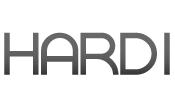Analysis

October 21, 2014
HARDI Members See Prices Softening
Written by Sandy Williams
The steel market seems fragile right now said members on this morning’s monthly steel conference call hosted by the Heating, Air conditioning, Refrigeration Distributors International (HARDI).
Pricing is beginning to slip as demand remains steady was the consensus of most callers. A HVAC wholesaler noted the mills are “negotiating more readily than they were at this time last year.”
In the Midwest wholesaler said, “Demand is good but we are concerned about softening in pricing. Our competitors have numbers we can’t make head or tails of. Can’t control that or demand…”
A caller in the Southeast said business is steady with some slowing in the last two weeks but they are expecting the next few quarters to be good.
In the Mid-Atlantic region business conditions were referenced as being “very soft and demand very weak.”
In Kansas “demand is relatively strong but prices are definitely eroding. Competitors are doing things we can’t figure out.”
Since the mills aren’t lowering prices there was confusion on where the price softening is coming from. One of the large galvanized service centers on the call spoke about most of the price movement as being from the top end of the range as opposed to new low’s being set. The service center reported their spot business as being “very active, we are surprised at some of the inquiries that come across and orders that are going out the door.”
One of the wholesalers called the market “fragile” and told the group, “Everybody is waiting to see who is going to act first… Last year the mills had resolve… This year we are at about the same base price [as 2013] with nowhere near the fortitude from the mills. They still want business and they will negotiate more readily this time than last year.”
An East Coast wholesaler reported that, “The mills are doing a good job of managing the message. They are bullish but they realize there is some softness and they don’t want to show their hand.”
One of the callers asked if the falling prices of scrap, iron ore and zinc would cause deterioration in pricing. John Packard of SMU, responded that hypothetically it should. Scrap is expected to slide again in November and the question is whether continued cheaper commodities will be passed to customers in lower prices in the coming weeks or not.
Two new trade issues have surfaced in the last week: the filing of a line pipe dumping suit against South Korea and Turkey and the termination of the suspension agreement on hot rolled coil from Russia. At this point, HARDI members are more interested in the shrinkage they are seeing in their margins due to competitive pressure from both traditional and non-traditional service centers. There was a discussion about whether inventories were being reduced in order to replace it with cheaper steel or if purchasing agents were “smelling blood in the water” and pushing prices lower.
Almost across the board HARDI members on the call said union contractors won’t use foreign materials but non-union businesses will. Service centers and wholesalers are getting more requests to verify Made in America compliance.
Consolidation and leadership change are still significant factors in the market place. It will take time for SDI and AK Steel to absorb the Severstal assets and react to pricing in the market. The same is true for AM/NS Calvert, and Nucor’s acquisition of Gallatin.
Although the mills will have tighter control of the market they “still have hearths to feed and have to keep making steel” said one wholesaler. “They can only feed the furnace if they have orders, so we are back to demand.”
HARDI = Heating, Air-conditioning, Refrigeration, Distributors International. Steel Market Update is a HARDI member company and participates in their steel group’s monthly steel conference call.






